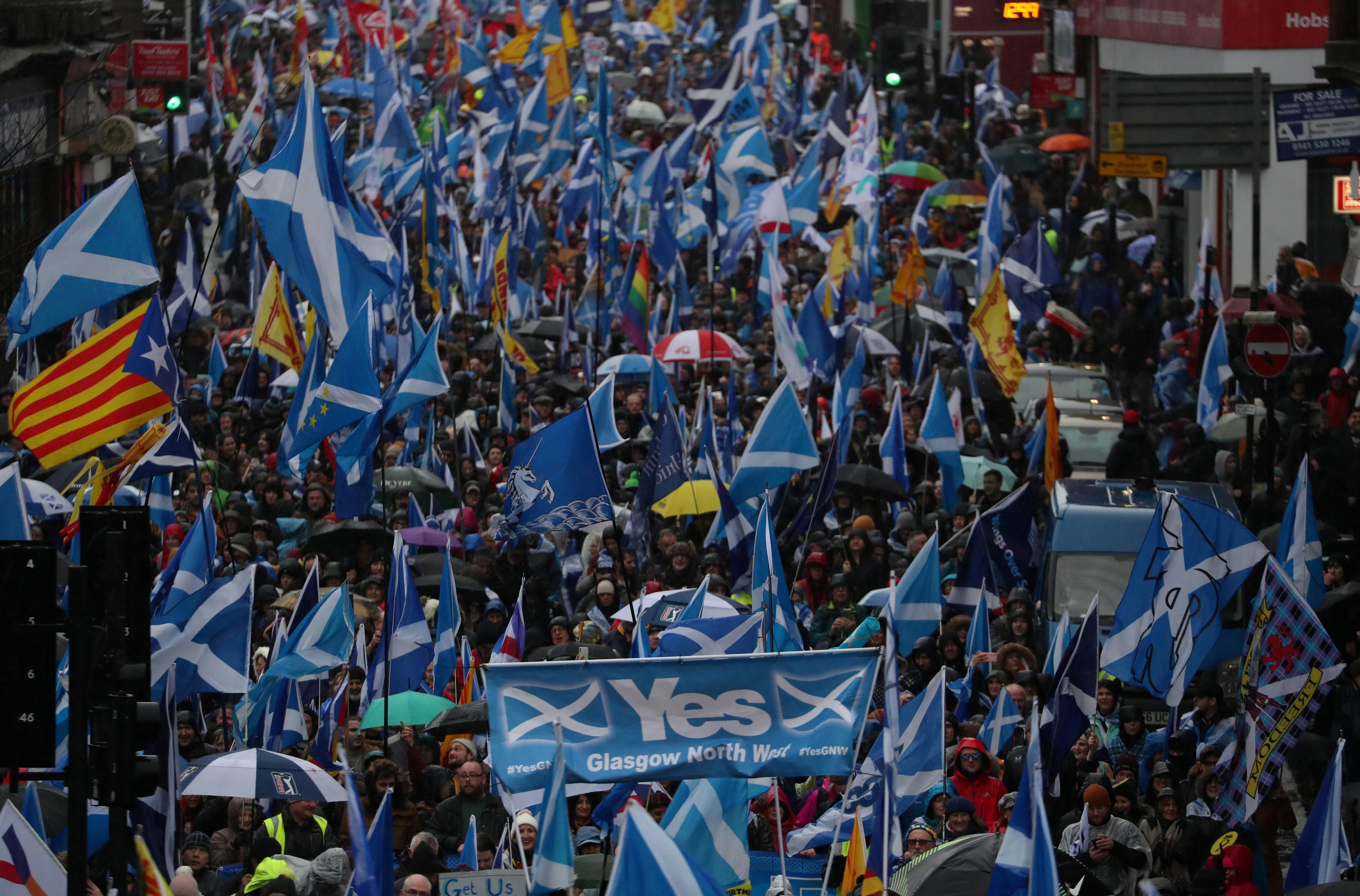Scots go to the polls this week to vote in their first parliamentary election since Brexit. We already know that the incumbent Scottish National Party will win most seats. Will its majority be big enough to demand another independence referendum?
Almost seven years ago, Scotland turned down independence in a plebiscite by a 10-point margin. But that was before the entire United Kingdom voted to leave the European Union in 2016 — against the wishes of most people in Scotland.
Many Scots felt cheated in the 2014 referendum because a lot of them voted to remain in the UK precisely to also stay in the EU. As post-Brexit political chaos that followed has further boosted nationalist sentiment in Scotland, the outcome of Thursday's vote will be closely watched in four capitals.
Edinburgh. COVID has dominated the campaign in Scotland, with independence lurking in the background. One of the reasons that the SNP is riding so high in the polls is Scottish First Minister Nicola Sturgeon's widely praised pandemic response strategy, which resulted in Scotland reporting less deaths per capita than the UK average. Perceptions of her competence were often compared with those of UK Prime Minister Boris Johnson, already unpopular with Scots before COVID and whose often-haphazard approach to the crisis has made his approval ratings there plummet.
Many Scots believe they would have handled COVID even better without the British government meddling in their affairs. Post-Brexit support for Scottish independence has surged in particular among women, in large part due to Sturgeon's much stronger approval rating with females than her estranged predecessor Alex Salmond.
With about half of Scots currently in favor of leaving the UK, Sturgeon seized on the opportunity by proposing in March a draft law to hold a second plebiscite. Unsurprisingly, her move was lambasted by opposition unionist parties, who accused the chief minister of politicizing the pandemic to drum up support for her separatist cause. Now she says ending COVID is the immediate priority.
London. In the UK, however, the election is all about Scottish independence. An outright SNP majority in Holyrood is all but assured to encourage Scottish nationalists to demand another referendum. That'll set up the center-left Sturgeon on a collision course with the center-right Johnson, who has called the 2014 vote a "once-in-a-generation" event.
The British PM has a lot on the line with Scotland's election. His predecessor David Cameron took a huge gamble on the 2014 referendum: the result encouraged him to agree to the Brexit vote, which then ended Cameron's political career. That's what Johnson faces if his government loses a second Scottish plebiscite. The problem is, will he be able to resist the immense political pressure that the SNP majority would put on him to grant another referendum that most Scots want?
More immediately, Johnson's Tories are running neck-in-neck for second place with the opposition Labour Party. Coming in third would be a major embarrassment for the PM. Labour leader Keir Starmer is against holding a fresh independence vote in the near term, but unlike Johnson is open to the possibility later on.
Belfast. Northern Ireland also voted against leaving the EU — albeit by a slimmer margin than Scotland — but popular support for reunification with the independent Republic of Ireland is rising due to growing discontent over the economic fallout of Brexit and demographic trends that favor Catholic republicans over Protestant unionists. If the Scots get another referendum soon, the Northern Irish will be next in line.
Brussels. If Scotland were to eventually vote in a referendum to break away from the UK, one of the main reasons would be so it could rejoin the EU. Regaining membership, however, would not be a quick process, despite Scotland having been part of the EU — as a UK territory — from more than 40 years.
That's because it would require consent from all 27 EU member states, among which Spain could possibly veto to avoid setting a precedent for Catalonia. But as long as the Scots don't vote without permission from the central parliament, as Catalans did in 2017, Edinburgh may be able to negotiate a compromise — probably economic concessions — with Madrid that doesn't give hope to Catalan separatists.
Scexit? Whether or not a referendum is called soon, the likely outcome of Thursday's election means that talk of Scotland's independence will dominate UK politics for the next few years — as Brexit did from 2016 onward. Those who warned then that Brexit would ultimately break up the UK were clearly onto something.